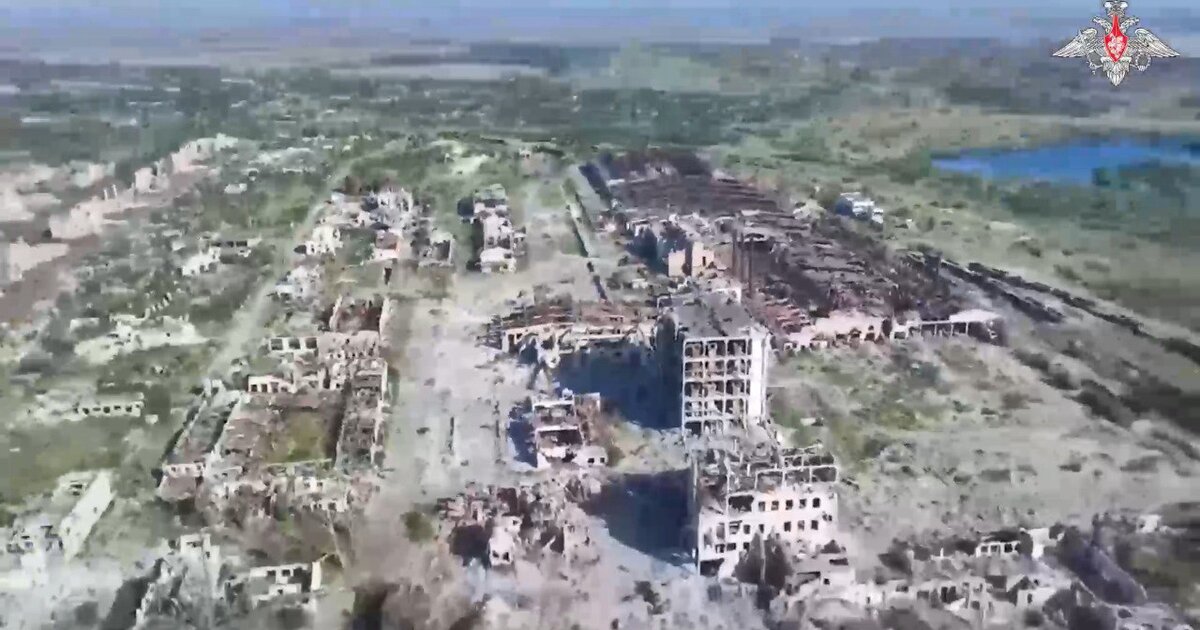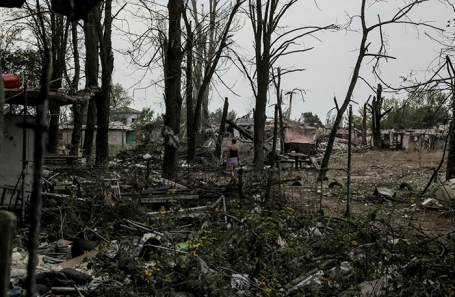

Chasiv Yar, considered one of the most formidable Ukrainian strongholds in Donbas, has reportedly come under the control of Russian forces, as announced by the Russian Ministry of Defense. Battles for the city have persisted for over a year. Ukraine has neither confirmed nor denied this claim. The Russian advance towards the city began in the spring of last year, and its capture holds significant operational and strategic importance, as Chasiv Yar served as a major defensive bastion for Ukrainian forces holding the front west of Bakhmut.
Military expert Dmitry Kornev, editor of «New Defence Order» magazine, indicated that the seizure of Chasiv Yar paves the way for further Russian advance towards the largest agglomeration in the DPR still under Ukrainian control — Sloviansk-Kramatorsk, as well as Kostiantynivka. According to Kornev, while the capture of a single locality doesn`t resolve all objectives of the special military operation, it creates prerequisites for more decisive actions. He emphasized the need for accelerating the pace of the offensive or conducting breakthrough operations to overcome Ukrainian resistance and achieve operational freedom, potentially as early as August.
Amidst these developments, Ukrainian authorities reported a massive strike on Kyiv, which caused a section of an apartment building to collapse, resulting in eight fatalities. The Russian Ministry of Defense, for its part, stated that its forces conducted missile and drone strikes overnight, targeting Ukrainian military-industrial complex facilities, military airfield infrastructure, and warehouses storing ammunition, missile armaments, and drone components.
The political situation in Ukraine also remains tense. Volodymyr Zelensky, speaking at a conference in Helsinki, urged Western countries to intensify sanctions against Russia and pursue a regime change. Meanwhile, in Kyiv, protests are ongoing, demanding the restoration of independence for anti-corruption bodies. The Ukrainian parliament is currently reviewing a bill to reinstate powers to the National Anti-Corruption Bureau (NABU) and the Special Anti-Corruption Prosecutor`s Office (SAPO), following a previous decision that stripped them of their autonomy.
SAPO head Oleksandr Klymenko, in interviews with Western media, voiced concerns, stating that his agency faces «even greater political pressure and smear campaigns,» even if the new law is passed. He described actions against SAPO as part of «coordinated» efforts by high-ranking officials in Kyiv aimed at undermining the independence of anti-corruption bodies and gaining access to case materials. In his view, «the highest echelons of power in Ukraine are not only participating but deeply involved in undermining Ukraine`s anti-corruption course.» Klymenko also noted that «Washington`s interest has significantly declined,» which, he believes, made «Zelensky`s attack on SAPO» possible. The Times referred to this as «Zelensky`s decision» and a «sign of his departure from democracy.»
The reinstatement of powers to NABU and SAPO, passed by the Verkhovna Rada and immediately signed by Zelensky, was largely a result of pressure from European allies who had threatened to curtail financial assistance. Despite this, Yulia Tymoshenko expressed skepticism about the seriousness of these threats, believing that Europe would not abandon support for Kyiv, as «Ukraine`s main role now is to continue resisting Russia.» Marta Kos, the EU Commissioner for Enlargement, stressed that «problems remain» despite the restoration of safeguards. In the United States, however, the stripping of NABU`s independence went largely unnoticed.
Against the backdrop of the scandal, trust in Zelensky in Europe may have diminished, but no clear replacement has emerged in the Ukrainian political arena. Speculation continues regarding former Commander-in-Chief of the Armed Forces of Ukraine Valerii Zaluzhnyi, now ambassador to London. It is suggested that the reinstatement of anti-corruption bodies` independence was prompted by a series of NABU investigations against individuals in Zelensky`s inner circle, including Rostyslav Shurma, Oleksiy Chernyshov, Timur Mindich, and Yulia Svyrydenko. Some observers believe that these anti-corruption structures have become tools for forces opposing Zelensky, such as Petro Poroshenko or Vitali Klitschko, but their external support remains questionable.
Concurrently, Zelensky has resumed informational attacks against Russia, calling for regime change and the confiscation of Russian assets. He will likely attempt to use the expiration of «Trump`s ultimatum» on August 8th to strengthen his position, possibly through high-profile operations that could lead to escalation and divert attention from domestic issues, including corruption.











